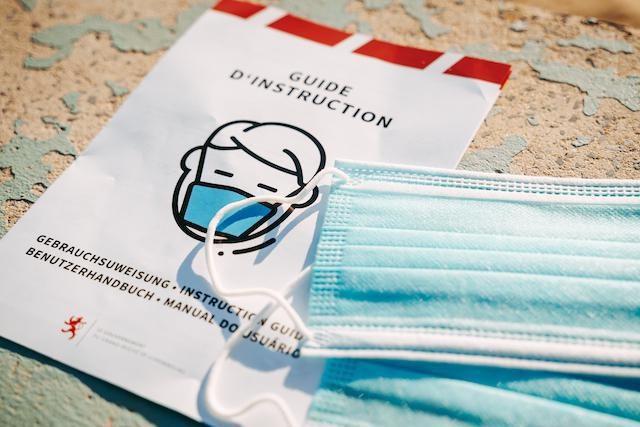Since 20 April it is mandatory in Luxembourg to wear a mask on public transport, in shops or other indoor venues. The mask mandate has been tightened since and currently also applies to gatherings, even when two metres of distance are maintained.
Masks must cover nose and mouth but can also include scarves, neck gaiters and homemade coverings. Face shields are not considered masks.
The government’s recommendation to wear surgical masks on public transport comes after Austria made FFP2 masks mandatory on public transport and in shops starting 25 January. Germany this week also decided to make medical masks--surgical, FFP2 or KN95--mandatory in shops and on public transport.
People from high-risk groups should consider using FFP2 masks, transport minister François Bausch said in answer to a parliamentary question this week.
France on Thursday warned citizens that cloth masks do not offer sufficient protection against transmission of the coronavirus, especially the more contagious new variants, with health minister Olivier Veran telling French people to no longer use fabric masks.
Luxembourg in May 2020 had distributed 50 masks to each resident, after an initial free five masks when introducing the mandate. It had given school children a free cloth face covering when they returned to the classroom.
Children older than six must wear masks on school transport, within the school building and when moving about in the classroom. It is optional when seated. At secondary school level it is up to school authorities whether students are required to keep wearing the masks also when seated in the classroom.
